What is COPD?
COPD, or chronic obstructive pulmonary disease, is an umbrella term that is used to refer to a number of lung diseases that cause increased breathlessness that gets worse over time. COPD can refer to emphysema, chronic bronchitis, refractory asthma, and some forms of bronchiectasis. Patients with COPD are at an increased risk for developing other conditions including heart disease and lung cancer.
Emphysema and chronic bronchitis are the most common conditions under COPD. Chronic bronchitis is the inflammation of the bronchi, medium to large air passageways in the lungs. The bronchi are responsible for moving air to and from the alveoli (air sacs in the lungs). Emphysema is a condition in which some of these alveoli are destroyed as a result of exposure to dangerous chemicals and cigarette smoke.
Causes & Risk factors of COPD
Common risk factors for COPD include asthma, age, genetics, exposure to tobacco smoke, and occupational exposure to dusts and chemicals.
According to Dr. Rolando Sanchez, “the main cause of COPD is smoking cigarettes and other tobacco products.” Many smokers experienced reduced lung function, however, only about 20-30% are diagnosed with clinically apparent COPD. Sometimes a smoker may develop a less common lung condition that is mistakenly diagnosed as COPD.
Another possible cause of COPD is the inhalation of other toxic chemicals associated with industrial or factory working conditions. Pulmonary exposure to industrial toxins can happen through dust, smoke, and other fumes in the workplace. Affected industries include construction, milling, mining, insulation, and building.
Common risk factors for COPD include asthma, age, genetics, exposure to tobacco smoke, and occupational exposure to dusts and chemicals. There are certain uncommon genetic disorders such as alpha-1 antitrypsin deficiency that have been shown to cause COPD.
Symptoms of COPD
COPD causes air to be trapped in your lungs after you exhale and just generally decreases lung function. COPD symptoms can be extremely painful, uncomfortable, and can interfere with many aspects of your life. People with COPD can experience episodes where symptoms are exacerbated; these flare ups of intense symptoms can last for at least a period of several days.
Here are a list of COPD symptoms:
Daily productive cough: this is the main and defining symptom of COPD. These coughs produce mucus or sputum that can be clear, white, yellow, or greenish. This cough must last at least three months a year for two consecutive years in order for a patient to be diagnosed with COPD.
Shortness of breath: especially during physical activity
Wheezing
Tightness of the chest
Excessive throat clearing: especially first thing in the morning
Blueness of the lips or fingernail beds
Fatigue
Unintended weight loss
Swelling of feet, legs, or ankles
Frequent respiratory infections
Diagnosis & Treatment of COPD
Learn which treatment option is best for you. Get started by filling out the form below.
Before treating COPD, you must get it diagnosed by a physician. Diagnosis is usually accomplished through testing or a series of tests. A pulmonary function test measures the amount of air you can inhale and exhale. These tests often use spirometry and can help your physician diagnose COPD and other lung diseases, sometimes even before you present symptoms. Other diagnostic tests include chest x-rays, CT scans, lab tests, and arterial blood gas analysis.
Treatment for COPD varies case to case. A physician may prescribe bronchodilators to relax the muscles in the airways, inhaled steroids, oral steroids, antibiotics or other medications to help you treat COPD. Some lung therapies such as oxygen therapy or pulmonary rehabilitation may be performed to improve lung function and quality of life in patients with COPD.
If you are experiencing the symptoms of COPD or are a chronic smoker in the Tampa Bay area, you can visit the Pulmonary Associates of Brandon to undergo a full array of diagnostic testing. The highly trained pulmonary experts there can help you find the best way to manage, diagnose, and treat many different types of lung disease.
